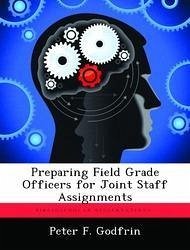Publication of Another Crossroads? Professional Military Education Two Decades After the Goldwater-Nichols Act and the Skelton Panel by the House Armed Service Committee calls into question the ability of our current Joint Professional Military Education (JPME) system to prepare officers to serve in joint duty assignments. This paper examines the joint education field grade officers receive in preparation for joint duty assignments. In this regard, the main areas for examination include the curriculum and the student and faculty composition at the Army Command and General Staff College's Intermediate Level Education (ILE), the Army's delivery method for JPME Phase I. However, in order to sufficiently understand how ILE fits into the continuum of joint education, it is necessary to examine the timing of ILE in relation to the rest of an officer's joint education. Additionally, it is important to determine how the timing of the education links to the assignment of officers to joint duty assignments. While the joint education provided to field grade officers is basically sound, there are significant areas for improvement that begin with precommissioning and continue through the intermediate level. First, joint education needs to begin much earlier in an officer's career in order to prepare officers for not only joint duty assignments, but also better prepare them for the rest of their joint education. Additionally, the curriculum at ILE, while ensuring it adapts to the continually changing joint operating environment, must continue to focus on the enduring subject matter necessary to prepare officers for joint duty assignments. Finally, a diverse and quality student body and faculty are crucial to the success of joint education at any level.
Hinweis: Dieser Artikel kann nur an eine deutsche Lieferadresse ausgeliefert werden.
Hinweis: Dieser Artikel kann nur an eine deutsche Lieferadresse ausgeliefert werden.








